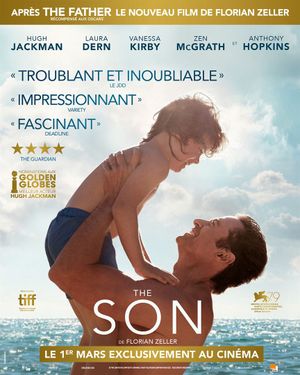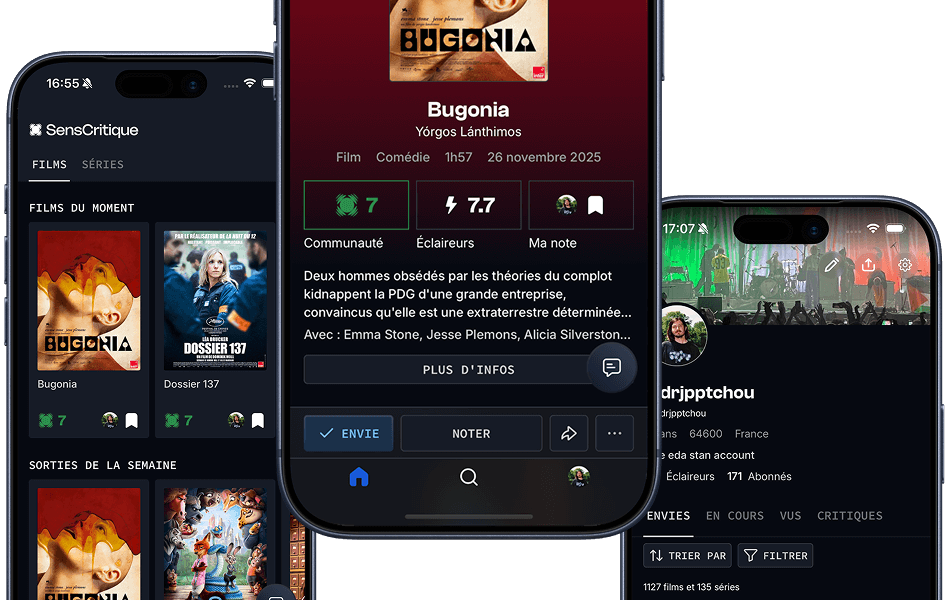My friend told me I would cry as my parents are divorced and I suffered from it. I cried, but not as much as I thought I would.
The first thing I would say is that the scenario is quite simple: two divorced parents and a depressed son relieving the pain by hurting himself (banging his head on the walls, cutting himself etc). However, the way they took it to introduce it is sooo smart.
We can notice it through plans and transitions. There was a scene in which Nicholas was sitting on a bench in the shadow while sunlight was trying to pass through the leaves. Just before, we could hear his mom calling him "sunbeam" and I saw him lossing himself in the darkness, loosing the relation with his mom litlle by little. I was soooo sad and empathetic with his mom character who felt sorry for everything even if she hasn't done anything wrong actually. There was one transition in which you were forced to see the son before seeing his mother or his father: he was the one linking both of them and I think that's a smart way to represent their family. I'd quote Nicholas with "When you've hurt mom, you were doing it to me" to continue with a really important new point which is memory.
In fact, memories from their previous life as a unified family came through in essential moments. Their vacation in Corsica I think it was? Well, it's a great comparison to their current life. Everything is in opposition (the light, the dialogues, their smile, the music...). It actually gave me chills to see how happy and close they were, unaware of what was waiting for them 8 years later. I could see and feel the melancholy of these memories, exactly as how I do when I watch VHS from when I was a baby with both my parents looking at me like I was an angel fallen from the sky. The washing machine we could see from time to time was (again) a really intelligent way to announce the fall of Nicholas and his inner explosion. I loved this and the effect it had on me in the movie theater, as if I was reliving my teenage rebellious years, lost and suffocating...
The two arguments scenes between Peter and his father//Peter and his son were the moment everything went crazy. The role of being a father isn't an easy thing to do. It is even harder for Peter, with him being a politician. He still was ready to let go of his dreams to save Nicholas and his life with Beth and Theo, which I found remarkable. When Peter had Theo in his arms he whispered to him, conforted him but I think he was conforting himself and Nicholas because he knew that nothing was right, he was scared. Beth and Theo were leaving the house for a week, he could see his son and make an important and hard decision. A tough week was awaiting him.
From the appointment in the psychiatrist service until the end, I held my breath as I felt their world falling apart. I knew... He said "I love you" to his parents and I instantly knew... They were sooo happy to have him with them, being between them three again after 8 years. I think this one scene shattered my heart.
A single gunshot, an endless silent following horrified gazes... When Peter had a talk with Nicholas about his book and his new life as an adult, I pitied him so hard. He couldn't believe his son was gone so he wondered how he would be if he was still there. He broke down in Beth's arms, crying, crying, crying, in pain thinking death could have waited.
I really cherish this movie and I genuinely think everyone should watch it, just to make people aware of depression, rather you're young or not. I'll end this review by dedicating this movie, like Zeller did, to every children (8 or 30) who's going through a hard patch. There's another way to channel the pain, death can wait a little longer.


